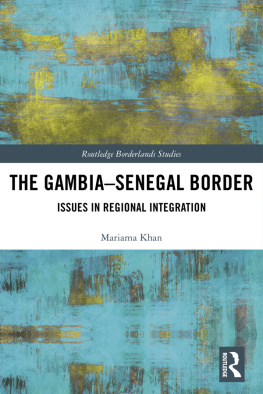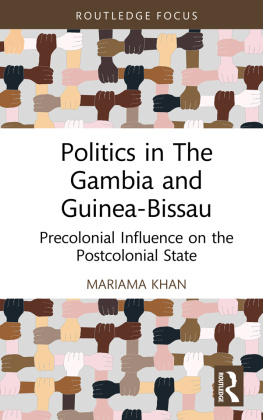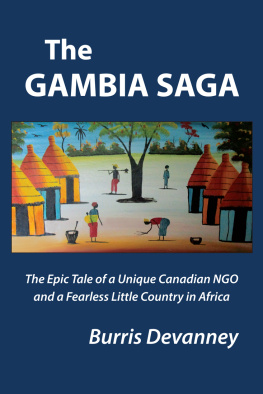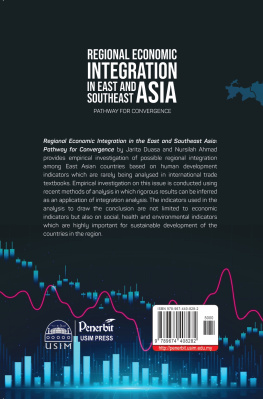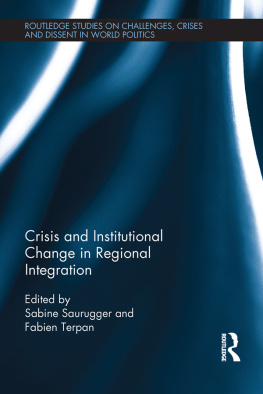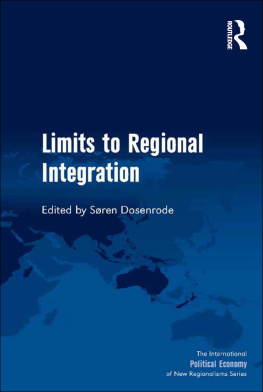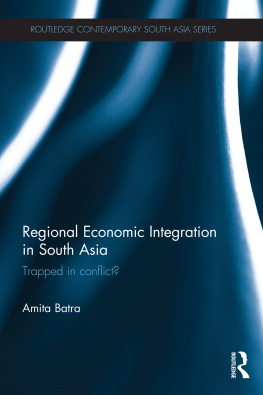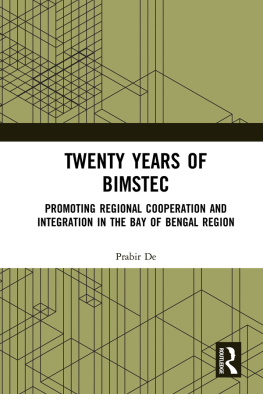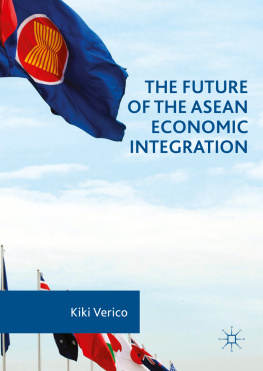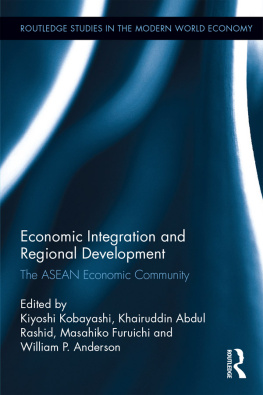The GambiaSenegal Border
This book interrogates the validity of longstanding claims that Gambians and Senegalese are one people in two countries and explores how that claim intersects with the politics and development needs of the two countries. Half a century after independence, proponents of Senegambian unification continue to campaign on the basis of the longstanding social, cultural and religious ties between Africas smallest country, The Gambia, and Senegal, the much larger country which almost entirely encircles it. The border between the two former British and French colonies remains one of the starkest examples of colonial geographical bartering, and it continues to serve a dual function as a bridge and a barrier in the social, political and economic relations of the two countries.
The book investigates how the two states are constantly pulled between impulses of cooperation and de-escalation, and a competitive intimacy that disregards kinship ties and re-activates tensions. In particular, the book shows how these interstate dynamics play out across the border itself, where indigenous ideas of relatedness are reflected in the cross-border transport and trade sectors, and in the religious networks that straddle the two countries.
This books skilful exploration of intersecting macro-level and micro-level relations in the Senegambia region will be of interest to scholars of African politics, regional studies, international development and border studies.
Mariama Khan is a Gambian scholar, poet, filmmaker and cultural activist. She currently teaches African History, West African Cinema and African Civilizations at the Lehman College Africana Studies Department, City University of New York (CUNY).
Routledge Borderlands Studies
Borderlands are spaces of transition between cultures, societies and states. Often, like in the case of the US and Mexico, they are understood as static territorial lines and buffer zones, subservient to the development of states and state territories. However, borderlands can also be fluid and ambiguous spaces, moulded by processes of economic and political integration or shifting geopolitical dividing lines. Moreover, borderlands cultures can be found far from borders, in cities, multicultural neighbourhoods and diasporic communities. They also exist as both future-oriented geographical imaginations and imaginaries with profound historical roots. Today, globalisation, integration and new transnational forms of communication change the complex interrelationships between state, society, space and borders. Consequently, borderlands become more and more places in their own right, reflecting broader supranational patterns of political, economic and social change.
With this series we encourage inter- and multidisciplinary investigation on borders and borderlands throughout the world. We engage with the political, social and historical richness of borderlands, reflecting their unique (geo)political and cultural significance in contexts of colonial rule, nation-building and integration. The series will explore, among other things, shifting social and political relations and place-related identities that emerge in borderlands, as well as cross-border interaction and the historical memories of everyday life at borders. With this series, we will both contribute to the rich tradition of North American and European borderlands studies and provide a forum for new growing interest in research on borderlands in Africa, Asia and Latin America.
Kosovo and the Collateral Effects of Humanitarian Intervention
Jaume Castan Pinos
The GambiaSenegal Border
Issues in Regional Integration
Mariama Khan
For more information about this series, please visit: www.routledge.com/Routledge-Borderlands-Studies/book-series/BORDERLAND
The GambiaSenegal Border
Issues in Regional Integration
Mariama Khan
First published 2019
by Routledge
2 Park Square, Milton Park, Abingdon, Oxon OX14 4RN
and by Routledge
52 Vanderbilt Avenue, New York, NY 10017
Routledge is an imprint of the Taylor & Francis Group, an informa business
2019 Mariama Khan
The right of Mariama Khan to be identified as author of this work has been asserted by her in accordance with sections 77 and 78 of the Copyright, Designs and Patents Act 1988.
All rights reserved. No part of this book may be reprinted or reproduced or utilised in any form or by any electronic, mechanical, or other means, now known or hereafter invented, including photocopying and recording, or in any information storage or retrieval system, without permission in writing from the publishers.
Trademark notice: Product or corporate names may be trademarks or registered trademarks, and are used only for identification and explanation without intent to infringe.
British Library Cataloguing-in-Publication Data
A catalogue record for this book is available from the British Library
Library of Congress Cataloging-in-Publication Data
A catalog record has been requested for this book
ISBN: 978-1-138-38786-7 (hbk)
ISBN: 978-0-429-42601-8 (ebk)
Typeset in Goudy
by Wearset Ltd, Boldon, Tyne and Wear
In loving memories of my dear father
Biran B. Khan
and
Mama Ceesay, my beloved grandmother
Contents
The book The GambiaSenegal Border: Issues in Regional Integration is a tribute to the peculiar challenges scholars from the global south, in particular those from Africa, face in their struggles for what Sabelo J. Ndlovu-Gatsheni called epistemic freedom. The writing of this book has exposed me to the fact that the pursuit of intellectual and academic freedom can be constrained by political interests.
Studying The GambiaSenegal relations was an intellectually redeeming exercise. But like most academic productions that aim to use non-Western discourses to theorise non-Western African experiences, social and cultural processes, the book crosses the epistemic line. It highlights how African knowledge systems can be used to theorise African phenomena. These knowledge systems which include the theories used to describe The GambiaSenegal relations and cross-border ties are adequate to serve as valid and legitimate references for academic discourses on African issues.
However, this intellectually redeeming and academically refreshing project would also face political boulders. This means irrespective of our common value for intellectual and academic freedom, some subject matters can still be considered as taboo intellectual discourses. Besides this reality, scholars from the global south can also be subject to institutional racism as they push forward the boundaries of knowledge which challenge mainstream discourses and worldviews. It is out of these realisations that I acknowledge this work as a firm tribute to the many and varied experiences of scholars and intellectuals from the global south. As the world gradually opens up to non-Western theorising of non-Western cultures and experiences, the academic vocation in the twenty-first century must be open to decolonial discourses and worldviews. This provides the only hope for rising above the epistemic crisis that assails contemporary knowledge production in our modern world.
Thank you.
Mariama Khan
I acknowledge the various comments I received from Professor Paul Nugent and Dr. Wolfgang Zeller when I was working on what was considered to be my PhD thesis. I thank each of them for all their comments. I also thank Professor Pierre Englebert, a beloved friend, for all his comments on the thesis version of this book. I also thank Professor Mark Christian, another beloved, for all the support he gave me during troubling times in New York. I thank all the people Ive interviewed for this work and all the people Ive encountered while researching this work. Ive learned lifelong lessons from most of these encounters. Many thanks to all the people who hosted me in Senegal family members, friends and other people I came to know through referrals. The hospitality they showed me was great. Their generosity was incredible. I also thank the editor of


